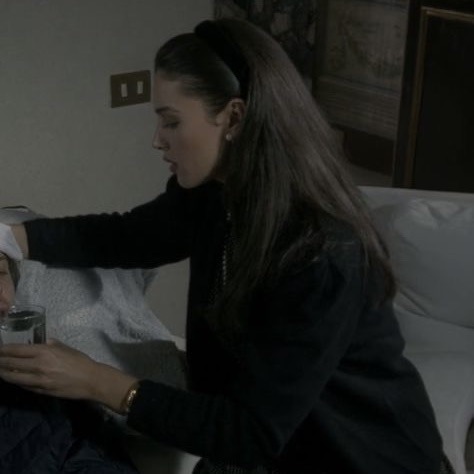𝔞𝔲𝔱𝔲𝔪𝔫 𝔰𝔱𝔲𝔡𝔶 𝔰𝔢𝔰𝔰𝔦𝔬𝔫𝔰 🍃🍂🍁






𝔞𝔲𝔱𝔲𝔪𝔫 𝔰𝔱𝔲𝔡𝔶 𝔰𝔢𝔰𝔰𝔦𝔬𝔫𝔰 🍃🍂🍁
More Posts from Illusoryxdays and Others










vintage stamps
I come across a great site to learn coding, I don’t see a lot of people talking about it tho. (There is an app too!)
This site has python 101 for free (and many another, tho course from 102 and up aren’t free)

Its has a cute design and great at explaining the small details that some teachers don’t explain ✨

There is also many exercises in each chapter of the lessons.
You can check more about it from there official site ✨

Happy coding you all 🫶🏻




The women who laid the foundation of tech
EDIT: I noticed that this post ended up being reblogged by terfs. If you're transphobic this post is not for you to reblog. I want to celebrate everyone who is not a cis man in this industry, including trans women and nonbinary people in tech, and it was my mistake to only include cis women in this post when there are so many trans women and nonbinary people who have done great things in tech as well. Trans women are women and just as important.
Here you can read about trans ppl in tech, and please do:
https://www.thecodingspace.com/blog/2022-03-01-six-trans-programmers-who-shattered-the-lavender-ceiling/
https://abcnews.go.com/Business/transgender-tech-visibility-obstacles-remain/story?id=76374628
The morning of women's day i attended a super inspiring seminar about being a woman in tech at a large tech company in my city, and now I'm inspired to share what I learned with all of you!
I didn't have time to finish this post on women's day, but it's not too late to post now: every day is a day to celebrate women!
Women actually laid the foundation for a lot of the tech industry.
For example, the first computer, ENIAC, was programmed completely by women! While men were the behind the scenes engineers, it was women who did all the actual programming of ENIAC.

The women who made up the team responsible for programming it were called Jean Bartik, Kay McNulty, Betty Holberton, Marlyn Wescoff, Frances V. Spence and Ruth Teitelbaum.
I think one woman who is finally getting her overdue recognition is Ada Lovelace. She was a mathematician (also often referred to as the first programmer) who created the first algorithm in 1842, which wasn't recognized until 1953! However, since none of her machines were ever completed it was never tested in practice during her time.

She has since been celebrated by giants such as google, and she has given name to a programming language (Ada). She was also the first person to write about what is today known as AI. Back when she was practicing, computers were simply thought of as calculators. But she had an idea that if computers can understand numbers, then that can be translated to letters, and in turn that can lead to computers being able to handle words, and eventually even write, draw and create music.
Hedy Lamarr was a famous Hollywood actress in the 40's, but she was also an inventor who laid ground for what we use today for Wi-Fi, Bluetooth and GPS services.

During WW2 she wanted to contribute positviely to the military efforts against the Nazis, and she tried to figure out how to radio control torpedoes. In 1942 she patented her technology "Secret Communications System", also known as frequency hopping, which laid the foundation for the technology we use today for Wi-Fi, GPS and Bluetooth. It wasn't until 1962 that it was first used for its intended purpose, during the cuban missile crisis.
Grace Hopper invented the first compiler, called A-0, in 1955, and was also part of the Univac team, which was the company also responsible for building ENIAC. She also initiated work on the COBOL programming language.

She was also the one to coin the term "bug" in 1947. Computers back then had lights to visualize their working process (which was also a womans idea to implement btw) and bugs would be attracted to the lights, but usually that was no issue - until a bug made its way into a tube which caused the computer to stop working. Hopper taped the bug to a piece of paper and logged what caused the crash - a bug.

Dorothy Vaughan (left), alongside colleagues such as Katherine Johnson (middle) and Mary Jackson (right), was a mathematician at NASA (called NACA when she started) who worked on the orbit for the first ever manned spaceflight and later also on Apollo 11 that would take humanity to the moon!

When Vaughan started at what was then called NACA, segregation was still prevalent in the US and she was not allowed in the same areas in the office as her white colleagues. Another department was formed for the black staff, and when the director of said department unexpectedly died, she was appointed as the new director and thus became the first ever black woman at that position at NACA/NASA. In 1958 when NACA becomes NASA segregation is forbidden, and that is when Vaughan and her colleagues Johnson and Jackson started working on programming the orbit and later also Apollo 11.
Continuing on the same track of NASA and space, Margaret Hamilton was the Apollo project's first actual programmer. Hamilton became the director of software engineering at NASA in 1965, and she was also the person to first coin the term !

In the image above, she stands next to all the handwritten code that was used to send humanity to the moon. During the early stages of the project when she would speak of "sofware engineering", software development was not taken as seriously as other forms of engineering, and it wasn't regarded as a science, either. She wanted to legitimize software development as an engineering discipline, and overtime the term "software engineering" gained the same respect as any other technical discipline.
And lastly, if you're a woman in STEM, I want to highlight and celebrate you! Being a woman in a male dominated industry is not easy, we often suffer from sterotype threat and are not seen as our own individuals, but rather "the woman" in a room full of men. But just as these women, I'm sure you will achieve greatness!!
Here are some additional resources if you'd like to learn more:


https://www.history.com/news/coding-used-to-be-a-womans-job-so-it-was-paid-less-and-undervalued
https://digitalfuturesociety.com/programming-when-did-womens-work-become-a-mans-world/
And this was mainly my source for this post, but it's unfortunately only available in Swedish:

Thank you for reading ✨



| 29 april 2025 |
wow april is almost over... trying to balance end of the semester TAing and studying for final 🤪 also the cherry blossom picture is from like a week ago haha
🎧 1x1 — bring me the horizon, nova twins
Internet Etiquette
Devastating! You just saw a take that you don't agree with! This is a check for reading comprehension and the practice of good faith.
Analyze
What emotion was this intended to inspire?
What was the goal the speaker was trying to achieve?
How could this be interpreted differently?
Is there context that would change the meaning?
Is the speaker qualified?
Reflect
What is your first reaction and why did you have that specific reaction?
Is it an issue that is harming you and/or did the group being harmed directly state that this harms them?
Do you accept the consequences that could result from interacting?
Is the speaker someone you can reason with?
What assumptions are you making about the speaker?
Speak
What is the goal of your words?
What audience are you catering towards?
Are you talking to the person with respect?
How could your words be interpreted differently?
What reaction will people have towards your words and how is it being achieved?

I want so many trinkets and clips and bits on my traveler’s journal that it takes me 5 minutes to even get into it for me to actually write in it.


tuesday | april 15
lots of biochem going on this term – if i'm not working through a paper for my seminar class, i've got gels to annotate or protocols to study.
SDS-PAGE from a protein purification i did in last week's lab – not 100% pure, but i'm happy with the yield. personally i would have used more resin (that flowthrough is just begging to be repurified) but it wasn't my call.
"what did students do before chatgpt?" well one time i forgot i had a history essay due at my 10am class the morning of so over the course of my 30 minute bus ride to school i awkwardly used by backpack as a desk, sped wrote the essay, and got an A on it.
six months later i re-read the essay prior to the final exam, went 'ohhhh yeah i remember this', got a question on that topic, and aced it.
point being that actually doing the work is how you learn the material and internalize it. ChatGPT can give you a short cut but you won't build you the the muscles.
-
 hyeya-ha liked this · 1 week ago
hyeya-ha liked this · 1 week ago -
 theofficialdeannawinchester liked this · 1 week ago
theofficialdeannawinchester liked this · 1 week ago -
 samu-ssica liked this · 1 week ago
samu-ssica liked this · 1 week ago -
 noturgoffgf-tv liked this · 1 week ago
noturgoffgf-tv liked this · 1 week ago -
 philargus liked this · 2 weeks ago
philargus liked this · 2 weeks ago -
 17novel reblogged this · 2 weeks ago
17novel reblogged this · 2 weeks ago -
 17novel liked this · 2 weeks ago
17novel liked this · 2 weeks ago -
 aliens-on-jupiter liked this · 2 weeks ago
aliens-on-jupiter liked this · 2 weeks ago -
 pingnova liked this · 2 weeks ago
pingnova liked this · 2 weeks ago -
 brendagarciiaaa liked this · 2 weeks ago
brendagarciiaaa liked this · 2 weeks ago -
 nonsensicalsoliloquy liked this · 2 weeks ago
nonsensicalsoliloquy liked this · 2 weeks ago -
 i-cant-find-a-good-username reblogged this · 2 weeks ago
i-cant-find-a-good-username reblogged this · 2 weeks ago -
 i-cant-find-a-good-username liked this · 2 weeks ago
i-cant-find-a-good-username liked this · 2 weeks ago -
 harmonicmelancholy liked this · 2 weeks ago
harmonicmelancholy liked this · 2 weeks ago -
 bondsmagii reblogged this · 2 weeks ago
bondsmagii reblogged this · 2 weeks ago -
 nellard liked this · 2 weeks ago
nellard liked this · 2 weeks ago -
 heroinlady111 liked this · 2 weeks ago
heroinlady111 liked this · 2 weeks ago -
 everythingisecretlyam reblogged this · 2 weeks ago
everythingisecretlyam reblogged this · 2 weeks ago -
 jemandderkeinenusernamenfindet liked this · 2 weeks ago
jemandderkeinenusernamenfindet liked this · 2 weeks ago -
 the-rainbow-spoon-incident2 liked this · 2 weeks ago
the-rainbow-spoon-incident2 liked this · 2 weeks ago -
 helovesmyheartshapedsunglasses13 liked this · 2 weeks ago
helovesmyheartshapedsunglasses13 liked this · 2 weeks ago -
 n-yctophilie liked this · 2 weeks ago
n-yctophilie liked this · 2 weeks ago -
 moon-times reblogged this · 2 weeks ago
moon-times reblogged this · 2 weeks ago -
 spectacle-street reblogged this · 2 weeks ago
spectacle-street reblogged this · 2 weeks ago -
 arthooooor liked this · 2 weeks ago
arthooooor liked this · 2 weeks ago -
 weverseleader liked this · 2 weeks ago
weverseleader liked this · 2 weeks ago -
 earlyberry reblogged this · 2 weeks ago
earlyberry reblogged this · 2 weeks ago -
 lovedilfsblog liked this · 2 weeks ago
lovedilfsblog liked this · 2 weeks ago -
 m1k0l-tr4v15-turb0 liked this · 2 weeks ago
m1k0l-tr4v15-turb0 liked this · 2 weeks ago -
 ravenlyran liked this · 3 weeks ago
ravenlyran liked this · 3 weeks ago -
 jumpshadow reblogged this · 3 weeks ago
jumpshadow reblogged this · 3 weeks ago -
 jumpshadow liked this · 3 weeks ago
jumpshadow liked this · 3 weeks ago -
 amanda99isbell liked this · 3 weeks ago
amanda99isbell liked this · 3 weeks ago -
 throwawayblogbaby liked this · 3 weeks ago
throwawayblogbaby liked this · 3 weeks ago -
 stargirlsensation liked this · 3 weeks ago
stargirlsensation liked this · 3 weeks ago -
 cityisours liked this · 3 weeks ago
cityisours liked this · 3 weeks ago -
 humongoustimetravelheart liked this · 3 weeks ago
humongoustimetravelheart liked this · 3 weeks ago -
 77bookworm77 reblogged this · 3 weeks ago
77bookworm77 reblogged this · 3 weeks ago -
 lilgingerness liked this · 3 weeks ago
lilgingerness liked this · 3 weeks ago -
 yuierza97 liked this · 3 weeks ago
yuierza97 liked this · 3 weeks ago -
 mattizard reblogged this · 3 weeks ago
mattizard reblogged this · 3 weeks ago -
 mattizard liked this · 3 weeks ago
mattizard liked this · 3 weeks ago -
 viviercalico liked this · 3 weeks ago
viviercalico liked this · 3 weeks ago -
 skibidisigmaohiorizzler111 liked this · 3 weeks ago
skibidisigmaohiorizzler111 liked this · 3 weeks ago -
 metheora reblogged this · 3 weeks ago
metheora reblogged this · 3 weeks ago

Network engineer in the making | 23 | USA | studyblr/bookblr/whatever
246 posts